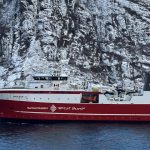Crewmen asked for their own shares when a controversial management plan, crab ratz program, is expected to be revive. It is told that the program allocates bulk of the multi-million dollar crab fishery to vessel owners, skippers, processors and coastal communities – but none for the crew. The council’s decision to further scrutiny the program could prove as stormy as the Bering Sea.
Initially crab rationalization program went into effect in August 2005, which allocated rights to catch and process crab to vessel owners, skippers, coastal communities and processors based on their proven history in the fishery. Anchorage economist Marcus Hartley said it’s difficult to compare earnings per person before and after crab rationalization began because of fluctuating total harvests and prices paid for crab. Advocates of the crab rationalization plan, known in the industry as crab ratz, liken the program to a solid three-legged stool, supporting vessel owners, processors and communities.
Edward Poulsen, who manages one of the crab cooperatives that participate in the fishery, explain that people are working together to make it successful. Critics say millions of dollars in crew shares that would have gone into communities where they live are gone, and they want them back. J. Bruce McDonald, deputy assistant attorney general for the Justice Department’s Antitrust Division, opined that any quota system distorts the operation of a free market.
Many crewmen, who said they were left out of the initial council process on crab rationalization, want the council to allocate them shares because of their history in the fishery.








